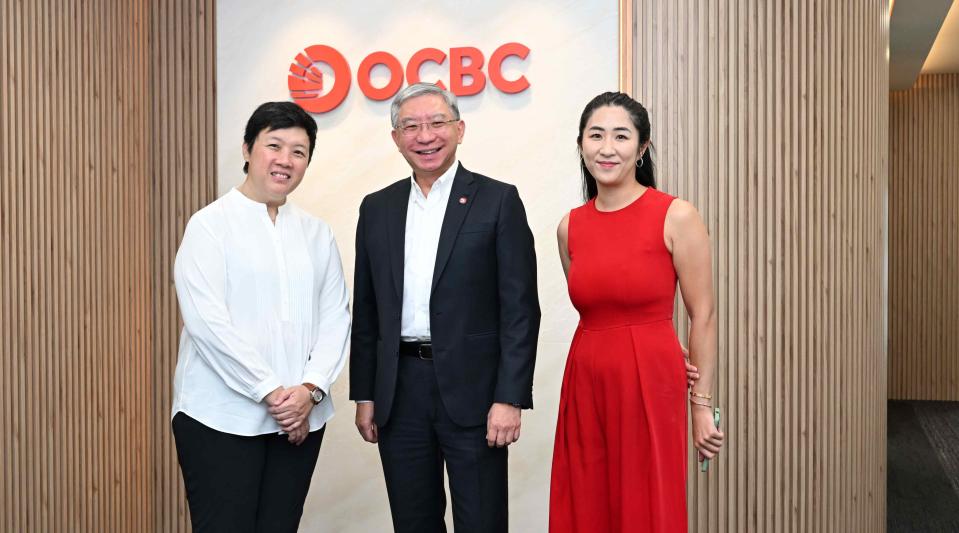OCBC to waive fee on loans issued to women-owned SMEs in Singapore under new programme

The OCBC Women Entrepreneurs Programme marks the first scheme dedicated to women entrepreneurs by a Singapore bank.
Oversea-Chinese Banking Corporation (OCBC) will waive processing fees on loans of up to $100,000 towards start-ups that are less than two years old and founded by women. Unveiled on March 8, this is part of a new programme targeted at Singapore’s small- and medium-sized enterprises (SMEs).
The OCBC Women Entrepreneurs Programme marks the first scheme dedicated to women entrepreneurs by a Singapore bank. Under this scheme, which will be rolled out in April, OCBC will remove the 1.5% “facility fee” levied on approved loan amounts.
The programme builds on a similar initiative managed by OCBC Indonesia. Since the launch in 2020, OCBC Indonesia has supported about 1,400 women entrepreneurs running micro-, small- and medium-sized enterprises (MSMEs) with over $300 million in loans disbursed.
Based on OCBC’s Singapore data, women-owned SMEs registered 20%-30% lower growth in sales turnover within the first three years of operations.
In addition, the percentage of newly-incorporated SMEs founded by women grew from 23% in 2018 to 30% in 2023. Last year, women-owned SMEs made up half of new businesses in education and retail, and over a third of new businesses in healthcare, business services and F&B, according to OCBC.
At a media briefing on March 4, Linus Goh, head of global commercial banking at OCBC, says the programme aims to improve the socioeconomic advancement of women in the economy, and help women-owned businesses grow.
OCBC will also provide educational workshops and networking opportunities among women entrepreneurs.
Currently, a quarter of the OCBC Singapore’s SME customers are owned by women entrepreneurs. While the programme aims to support women-owned businesses, Goh says the bank does not have an exact numerical target in mind.
Instead, Goh is “quite confident” that the proportion of women-owned businesses will rise and “continue the current momentum”.
Goh also anticipates some “pushback” from those who may not benefit from the programme. “Quite often, when we talk about doing something for women entrepreneurs in Singapore, or for women in Singapore, it’s not uncommon to get some degree of pushback. The pushback comes because the women in Singapore are already very empowered, very capable [and] very successful.”
However, “the stats don’t lie”, says Goh. “[Women] still represent a smaller proportion of the economy. If they are 30% of the overall economy, men are almost three times larger.”
The majority of OCBC’s customers start their businesses thinking beyond Singapore, adds Goh. Hence, the programme aims to help women entrepreneurs venture overseas. “It’s really not just about the domestic economy; it’s about the regional and global economy. Therefore, it’s important to put something in place that empowers the women entrepreneurs to go beyond the borders of Singapore.”
But doing business overseas brings other challenges, says Goh. “It is precisely as they go beyond the borders of Singapore that you start to see many of the challenges that you typically associate with women being at the forefront of business, of innovation, of breaking norms in industries; and that’s what we want to be able to empower and support.”
SMEs speak up
In some countries, women leaders are not as welcome as male leaders, says Sharon Lim, chairperson and former CEO of global 3D fashion design platform Browzwear. “Generally, today, this is less of a problem.”
In Asia, there is an “innate expectation” that a woman will come and soak up all the problems at home, adds Lim, whether as a daughter, mother or wife. “A lot of these expectations women put on themselves as well.”
Founded in 1999 in Singapore, Browzwear helps streamline processes in the fashion industry by creating true-to-life digital samples of apparel designs for fashion brands. This helps raise productivity, speeds up time-to-market and improves sustainability. The company now has offices in eight cities globally and serves more than 1,000 fashion and apparel companies worldwide. Its revenue in 2023 was above US$20 million.
According to Lim, 58% of Browzwear’s workforce are women. The company has also been working with OCBC for about a decade.
A more recent partner is N&E Innovations, a med-tech company founded in 2020 during the pandemic. According to founder Didi Gan, the company first took a loan from OCBC a year ago.
N&E Innovations innovated an antimicrobial agent — Vikang99 — derived from cashew and banana food waste, which can be applied on different surfaces to destroy bacteria. The company plans to expand to two other key regions and scale up production to 100 tonnes per month to meet growing market demands.
According to Gan, OCBC’s programme extends beyond financial assistance and serves as a “catalyst” for women entrepreneurs to thrive in sustainable initiatives. “Securing our first green financing loan from OCBC was a significant milestone for our circular economy start-up. I’m confident that with this programme, more women founders can gain access to vital financial support and a robust network of mentors and resources, empowering them to overcome challenges.”
See Also:
Click here to stay updated with the Latest Business & Investment News in Singapore
Singapore banks' asset quality 'may not fall out of favour' in 2024: Bloomberg Intelligence
OCBC sticks to 50% dividend payout ratio for FY2023, sets NIM target above that of peers
Get in-depth insights from our expert contributors, and dive into financial and economic trends

 Yahoo Finance
Yahoo Finance 